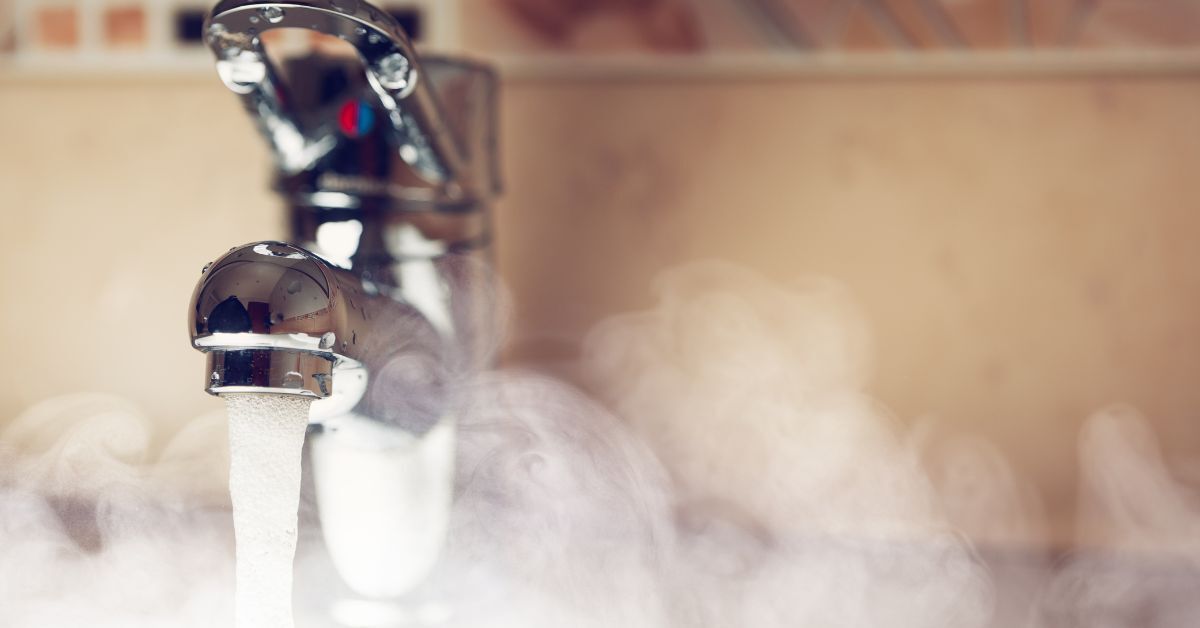Have you had to wait for hot water at the sink or in the shower and wonder why? If you notice it taking longer for hot water to come through the faucet, there may be a few reasons for the issue. Fortunately, you have options to help fix the problem. However, you’ll need to review the potential issues and determine if any apply to your situation.

Reasons Why You’re Waiting for Hot Water
While it seems like a nuisance to wait for hot water, there are several reasons why it could be an issue. If your hot water tank is further away from where you’re requesting hot water, you may have to wait longer for it to travel through the pipes. Your fixtures may have a low volume restrictor, making hot water take longer to move through the pipes.
If your water heater is ten years old or older, it could be time for a new one. You can have a plumber check yours out to see if it’s at the end of its service. Your hot water heater could have sediment buildup. It is when mineral deposits such as magnesium and calcium settle in the tank. A hot water heater professional can flush your water heater to improve its performance.
Sometimes, hot water takes longer to travel if the water heater is not the correct size. Consider upgrading the size of your water heater, mainly if the size of your family has grown over time.
When You’re Waiting for Hot Water to Recover
Water heaters have a recovery time for creating hot water when it’s all used from the tank. There are a few factors that affect how long recovery time will take. The size of the tank, the fuel type, temperature, and first hour rating (FHR) are determining factors. A larger tank takes longer because of the amount of water. Cold water coming into the tank takes time to heat up. Electric water heaters take longer than gas models. On average, it may take about an hour or so for recovery.
Can I Get Hot Water Any Faster?
A hot water recirculation system may help create hot water sooner. It helps move water from one place to another faster. It also circulates unused water to your faucets, so hot water is available when you turn it on. A thermostat or timer activates the system. It can be mounted to a faucet or as an attachment to your water heater. Another option to consider is installing a tankless water heater.
Professional Assistance for Hot Water Restoration
If you have concerns about your home’s hot water supply, consider working with an experienced plumber to learn your options. Ask about a tune-up for your water heater, a water heater flush, or other maintenance services to ensure your water heater is performing efficiently.